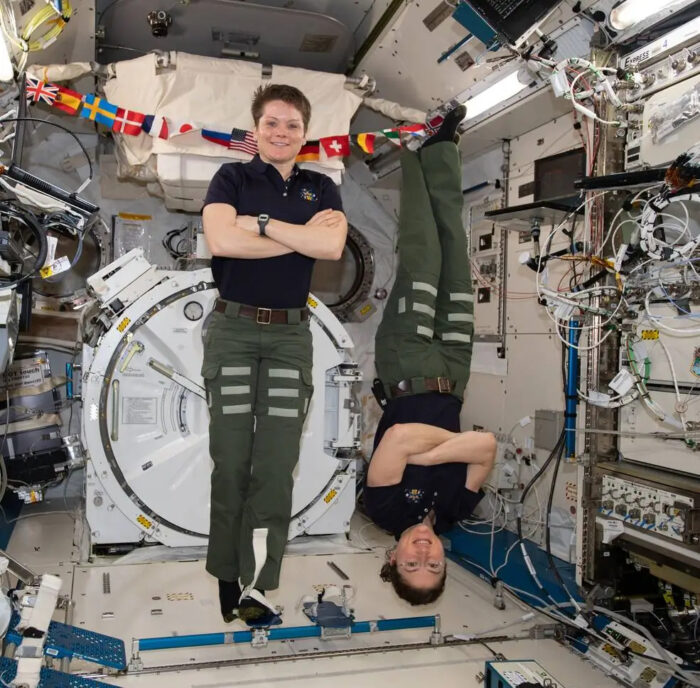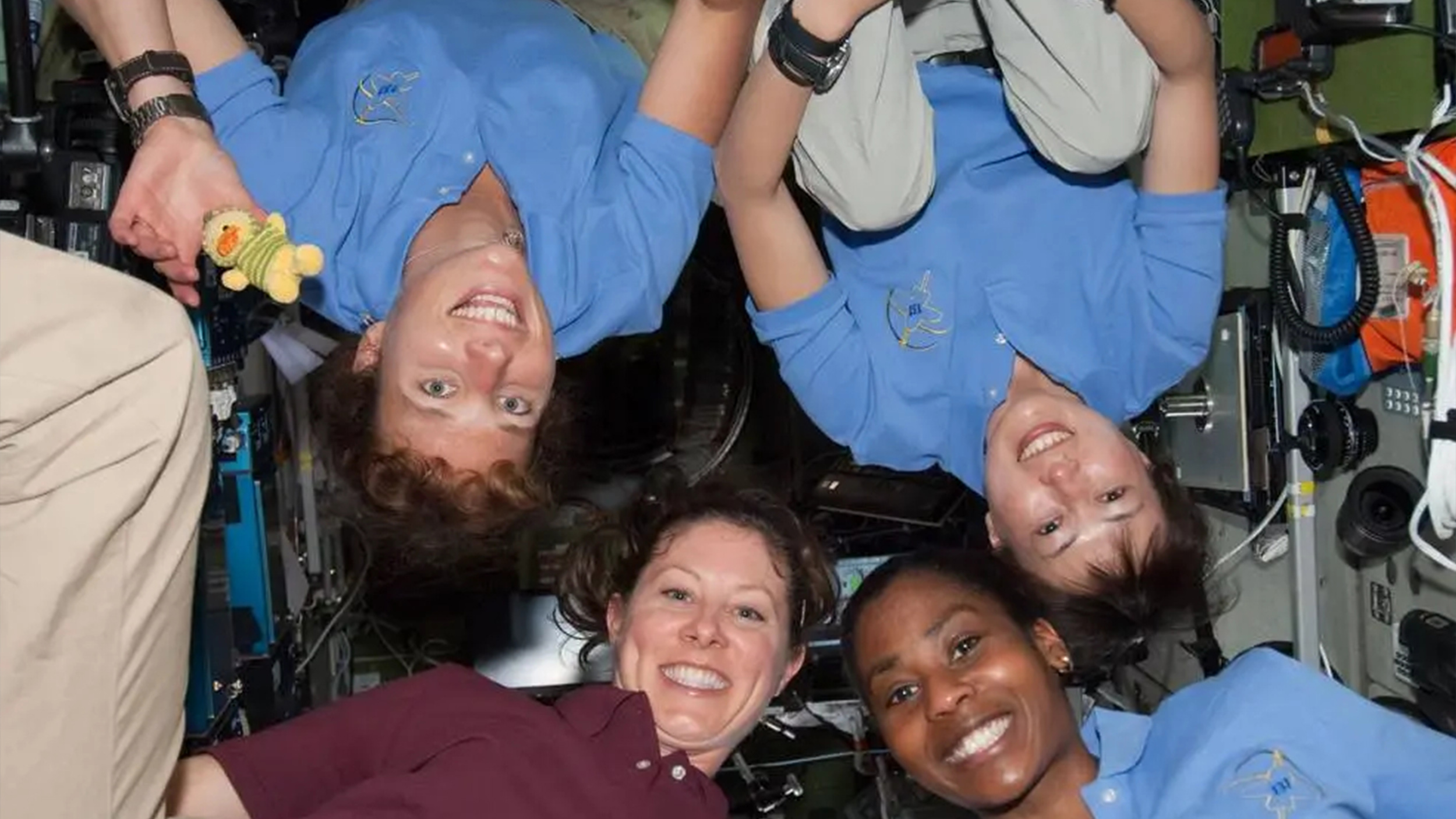In news that’s no surprise to fans of all-time great sci-fi movies, a new study has found that women may better withstand the physical rigors of space flight than men.
The study, conducted by a team from Weill Cornell Medicine in New York, looked at gene activity and immune response data from 68 astronauts. The findings appeared in the journal Nature Communications.
The study was small by regrettable necessity — far fewer women have traveled to space than men. But the preliminary findings indicate that “the gene regulatory and immune response to space flight is more sensitive in males,” according to the paper.
In short, women’s immune systems are less affected by space travel and recover faster once the astronauts return planet-side.

Anne C. McClain and Christina H. Koch on the International Space Station (ISS). Photo: NASA
“More studies will be needed to confirm these trends, but such results can have implications for recovery times and possibly crew selection, for example, more females, for high-altitude, lunar, and deep space missions,” the scientists wrote.
The team is unsure why this might be the case, but lead author Christopher Mason, a professor of physiology at Weill Cornell Medicine, has a theory. There’s something women can do that men simply can’t, and their bodies have all kinds of adaptations allowing that thing to happen — adaptations that apparently serve them well out there in the big empty.
Creating life.
“Being able to tolerate large changes in physiology and fluid dynamics may be great for being able to manage pregnancy but also manage the stress of spaceflight at a physiological level,” Mason told The Guardian.

Sian H. Proctor and Hayley Arceneaux during the Inspiration4 private space mission. Photo: Inspiration4






